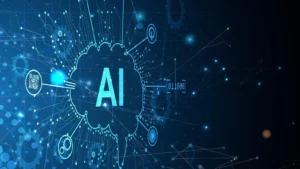Machine learning has been around for several decades, but it has only recently begun to emerge as a critical component of our technological landscape. The technology is transforming industries, including healthcare, transportation, and finance, by enabling us to process and analyze vast amounts of data in real-time, and make better decisions than ever before. In this article, we will explore how machine learning is revolutionizing our world and the potential implications of this technological shift.
What is Machine Learning?
Machine learning is a form of artificial intelligence that enables computer programs to learn from data without being explicitly programmed. It involves algorithms that analyze data, identify patterns, and make predictions based on that data. The technology has been made possible by the explosion of big data, which has enabled machines to learn from large amounts of information.
Applications of Machine Learning
Machine learning has numerous applications across different industries. In the healthcare sector, it is being used to diagnose diseases, identify risk factors, and develop personalized treatments. In finance, machine learning algorithms can help identify patterns in financial data and predict market trends. In transportation, self-driving cars use machine learning to identify objects in their environment and make real-time decisions about how to navigate.
Machine learning also has significant implications for the future of work. While the technology will undoubtedly lead to the automation of some jobs, it will also create new jobs in fields such as data science, machine learning engineering, and AI strategy. However, this shift will require significant investment in education and training to ensure that workers can adapt to the changing nature of work.
Implications of Machine Learning
Machine learning is still a relatively new technology, and its full implications are not yet fully understood. However, it is clear that the technology will have significant implications for society, including:
- Increased Efficiency: Machine learning has the potential to significantly increase efficiency across industries, leading to improved productivity and economic growth.
- Privacy Concerns: The use of machine learning algorithms raises concerns about privacy and data security. As machines learn from vast amounts of data, there is a risk that sensitive information could be exposed.
- Job Disruption: As mentioned earlier, machine learning will likely lead to job automation, which could result in significant disruptions to the labor market.
- Ethical Implications: There are ethical implications associated with the use of machine learning, particularly in fields such as healthcare and criminal justice. For example, there is a risk that machine learning algorithms could be used to discriminate against certain groups of people.
- New Business Models: Machine learning has the potential to disrupt traditional business models and create new opportunities for innovation and growth.
Conclusion
Machine learning is transforming the way we live and work, enabling us to process and analyze vast amounts of data and make better decisions than ever before. While the technology has the potential to significantly increase efficiency and drive economic growth, it also raises significant ethical and social concerns. As we continue to develop and refine machine learning algorithms, it is crucial that we consider the potential implications of this technology and work to ensure that it is used in a responsible and ethical manner. Ultimately, the future of intelligence is likely to be shaped by the continued development and implementation of machine learning and other forms of artificial intelligence.







Be First to Comment